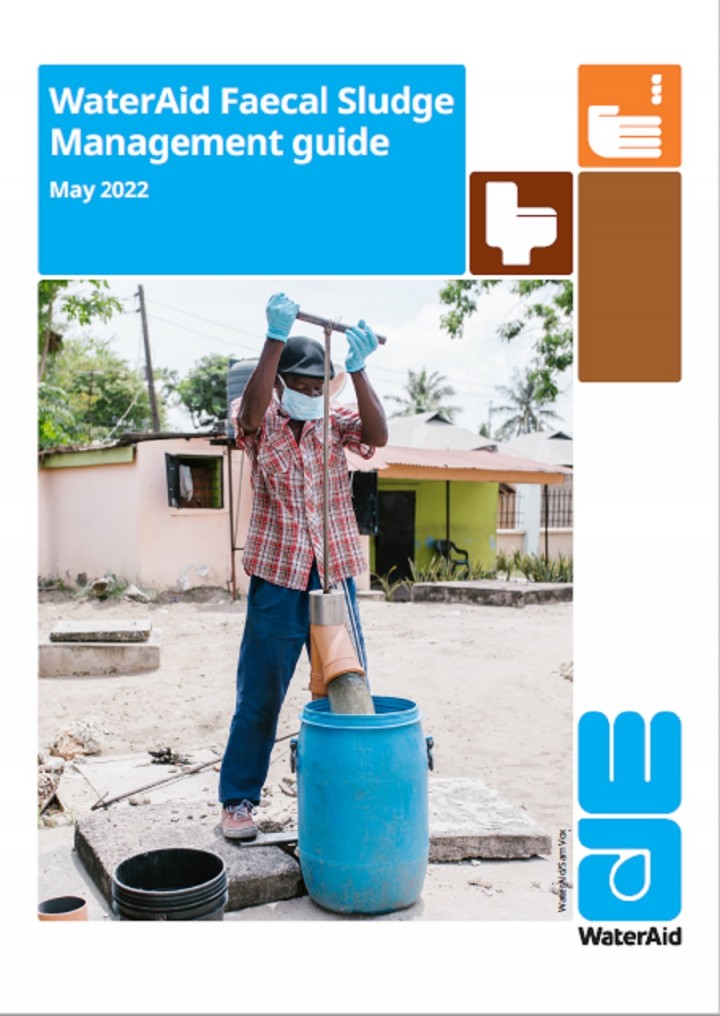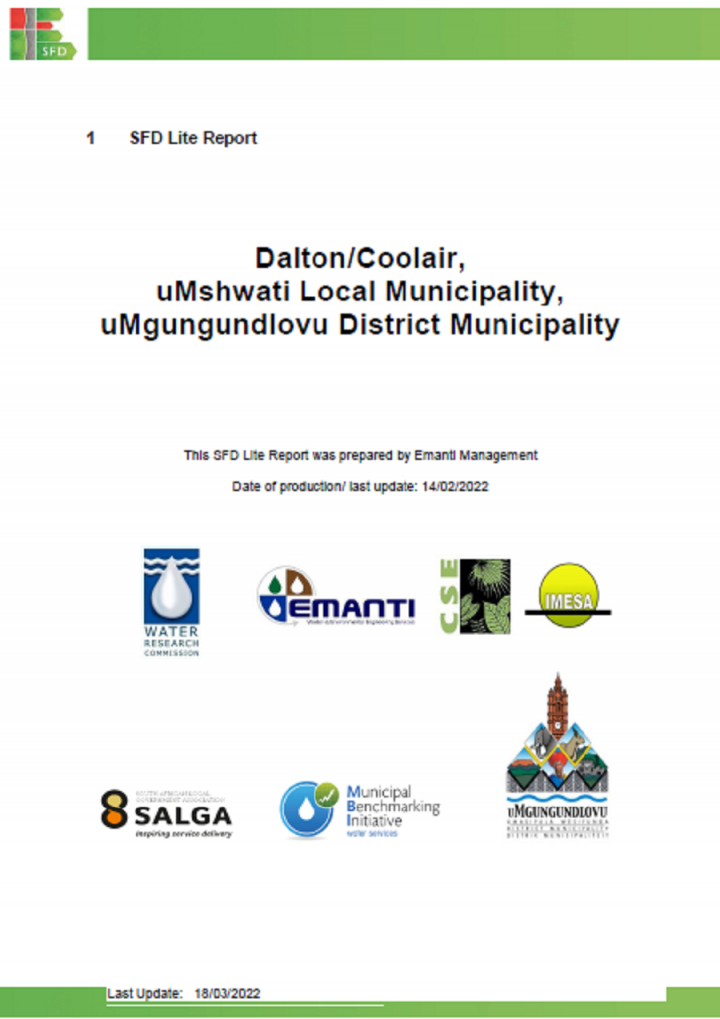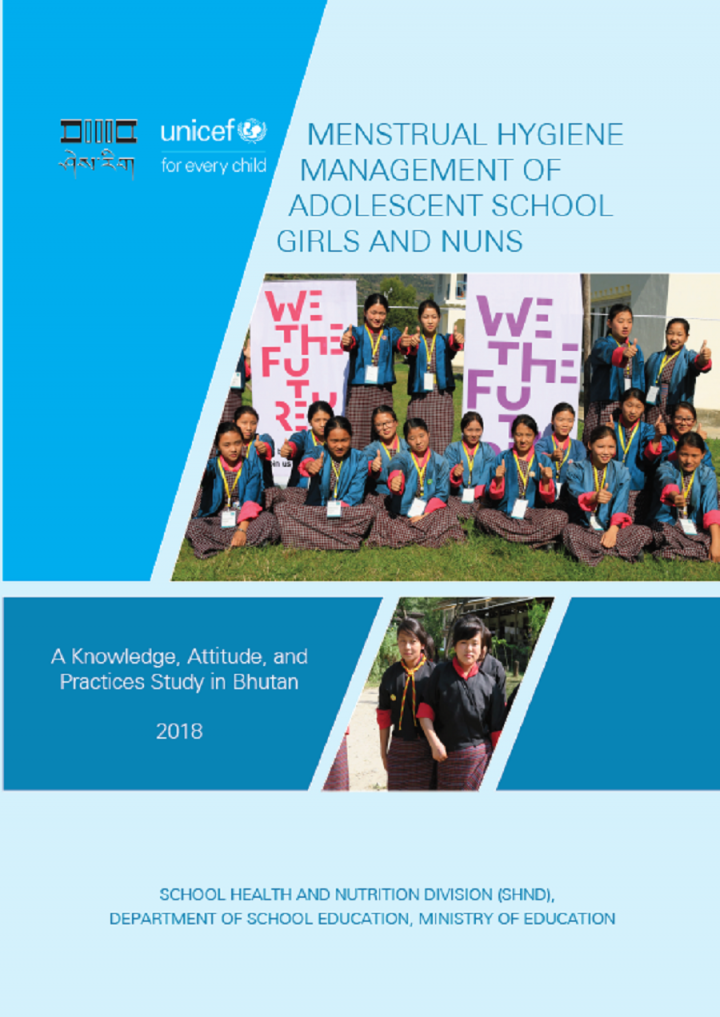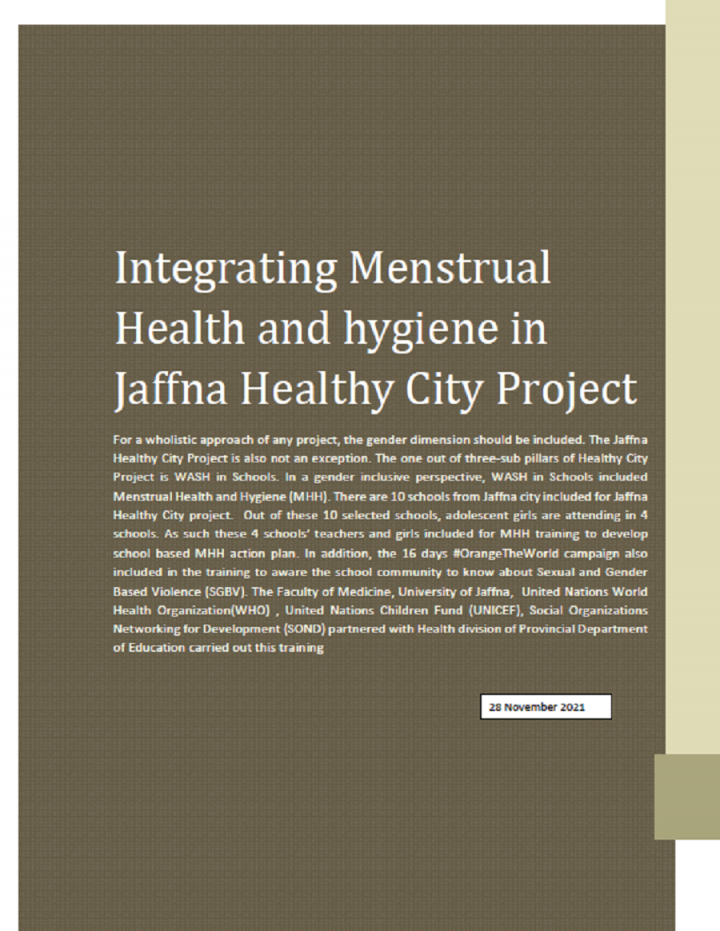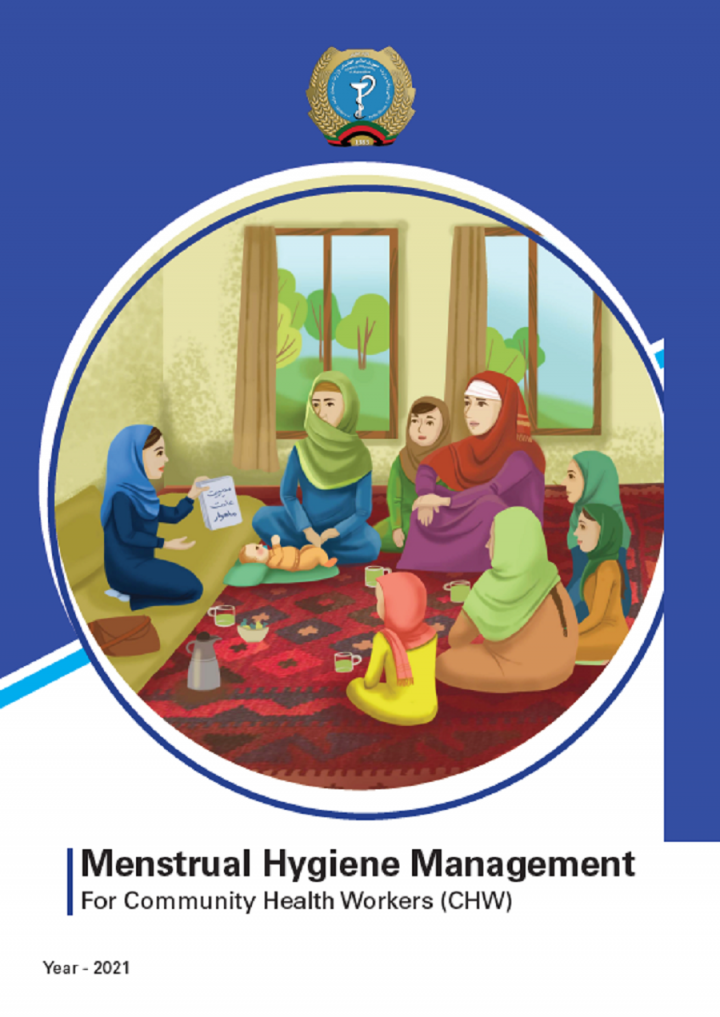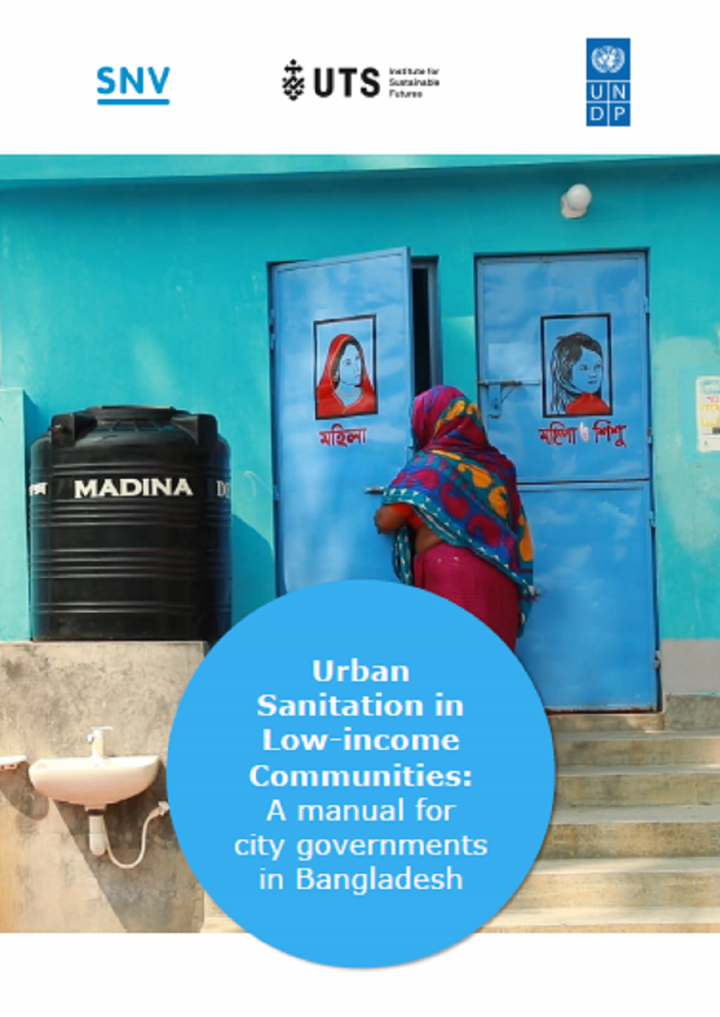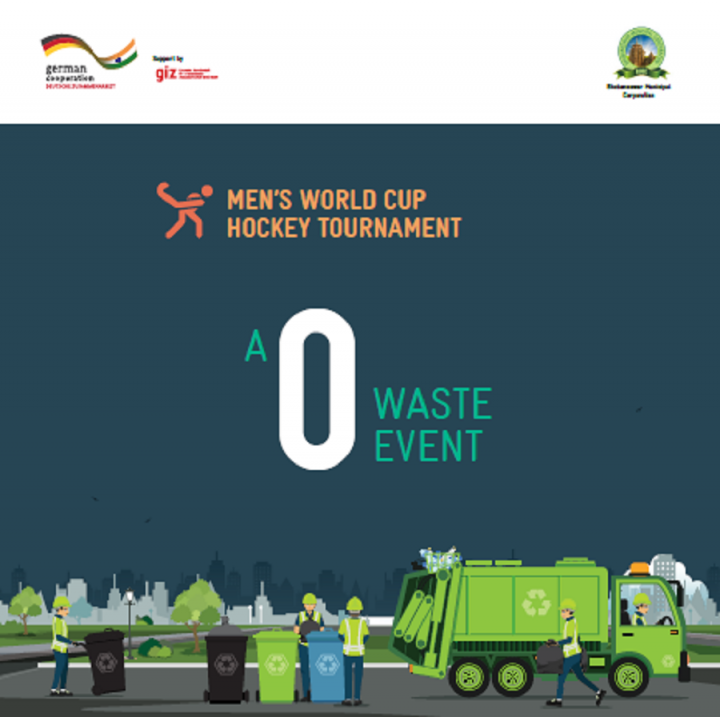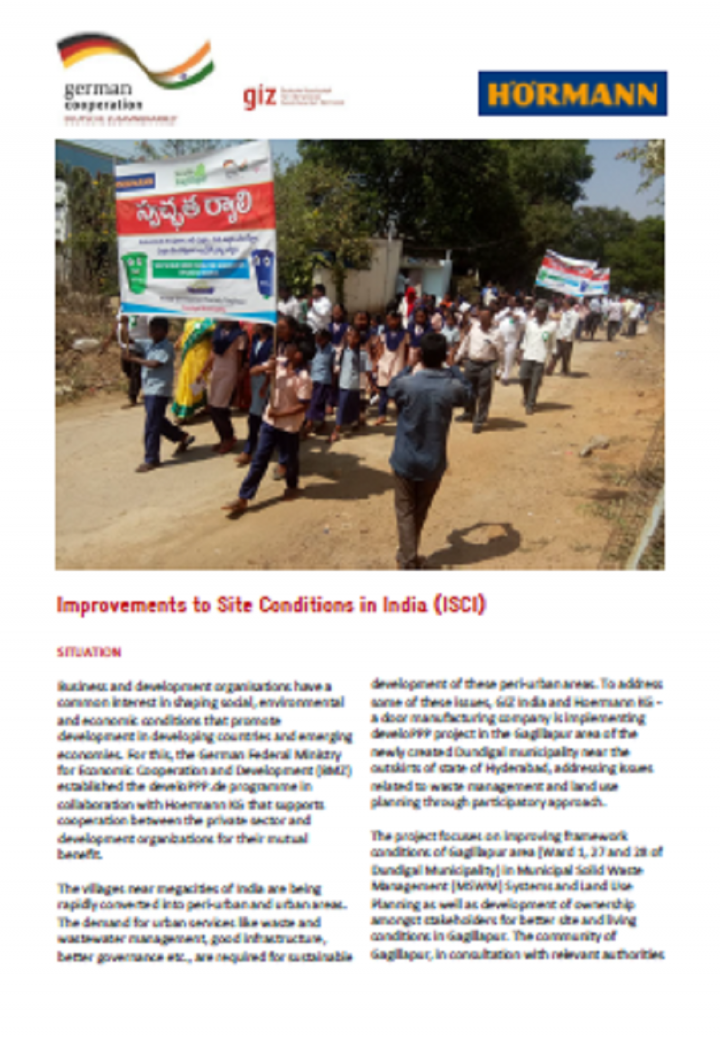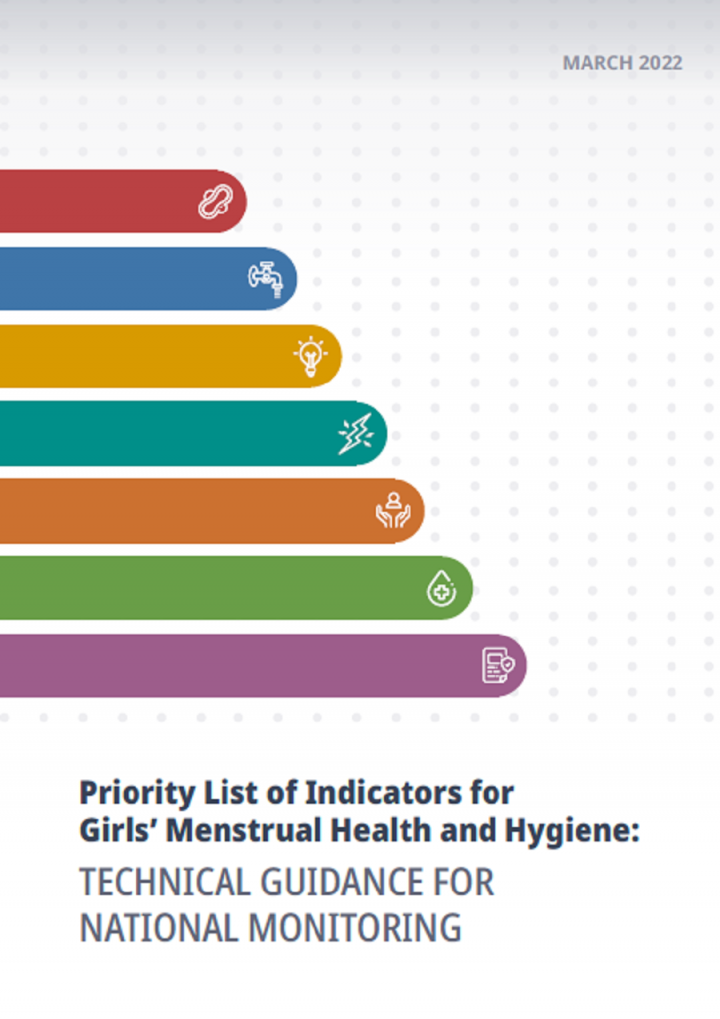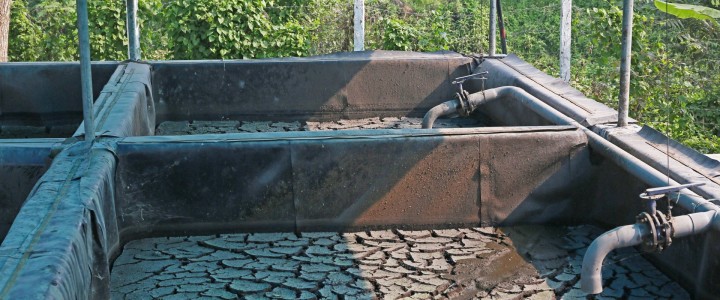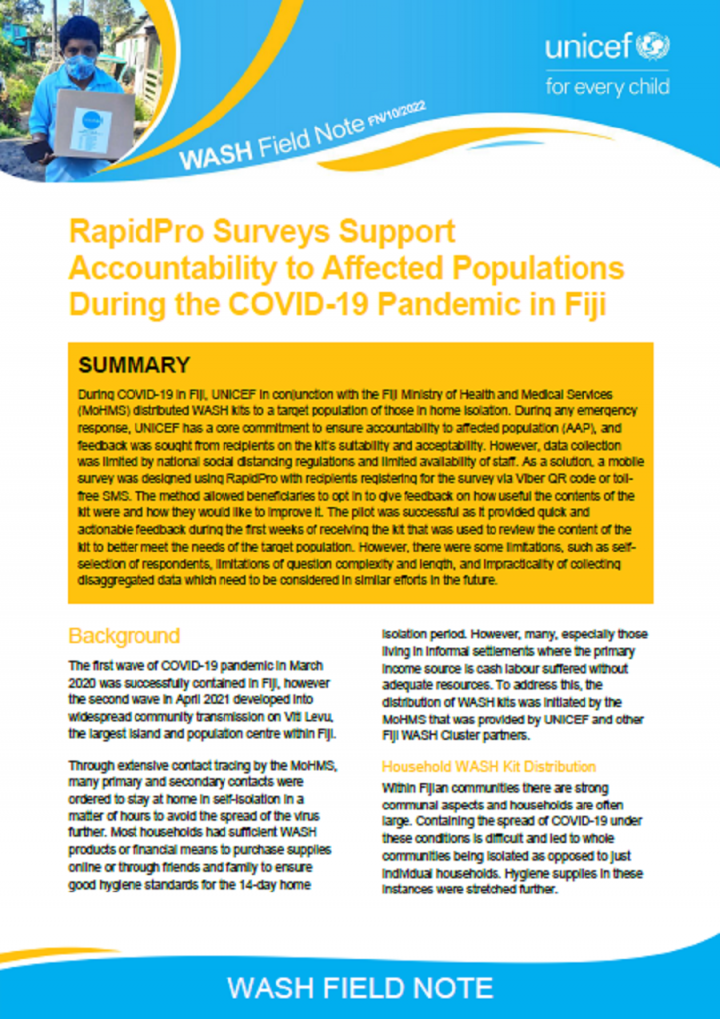WaterAid (2022) Assessment of the Health, Safety and Dignity of Sanitation Workers in Dar es Salaam, Dodoma and Arusha, Tanzania
Sanitation workers provide an essential public service to reach Sustainable Development Goal 6.2, but often at the cost of their dignity, safety, health, and living conditions. A key barrier to providing support for this profession is the insufficient data on sanitation workers and their work environment. As such, the aim of this assessment was to explore opportunities to support sanitation workers in Tanzania, including strengthening […]
WaterAid (2021) Assessment of the Health, Safety and Dignity of Sanitation Workers in Kano City, Nigeria
Sanitation workers provide an essential public service to reach Sustainable Development Goal 6.2, but often at the cost of their dignity, safety, health, and living conditions. A key barrier to providing support for this profession is the insufficient data on sanitation workers and their work environment. As such, the aim of this assessment was to explore opportunities to support sanitation workers in Nigeria, including strengthening […]
Mander, H., Kumbhare, S., Bhattacharya, A., Chanchani, M. (2020) Addressing the additional challenges of Manual Scavengers and Sanitation Workers during the Pandemic
Sanitation workers in India, usually belonging to the most vulnerable and marginalized caste groups and communities, had already been facing several challenges including health risks, low and irregular wages, financial struggles, societal discrimination, and lack of access to social security measures. The COVID-19 pandemic resulted in additional struggles for them, as some of them were required to continue work on the frontline even during the […]
Al-Karablieh, Lauri Badi, Maha Halasheh, Ahmad Sobh, Ismail Al Baz, Rania Al’ Zoubi, Hesham Asalamat, Keith Burwell, Jens Götzenberger, Frank Pogade, Gerhard Rappold (2019) Decentralized Wastewater Management in Jordan
The Compendium is available in English and Arabic. It covers the following topics: (A) Decentralized Wastewater Management in the light of Adaptation to Climate Change (B) Domestic Wastewater Reuse in the Context of Decentralized Wastewater Management in Jordan for Climate Change Adaptation (C) Business Models for Decentralized Wastewater Management in Jordan (D) Social acceptance as a priority for sustainable decentralized wastewater systems (E) Orientation Guidelines developed based on the Experiences […]
WaterAid (2022) Faecal sludge management guide
Faecal sludge management is the collection, transport, treatment and reuse or disposal of faecal sludge from pit latrines, septic tanks and other on-site sanitation technologies, and is crucial to achievement of the Sustainable Development Goals. You can use this guide as a reference document to help create better sanitation programmes, specifically to make sure sanitation is safely managed for everyone, everywhere. This guide does not replace […]
Nezar Hammouri, Mohammad Talafha, Qais Hamarneh, Zeina Annab, Rami Al-Ruzouq, Abdallah Shanableh (2022) Vulnerability Hotspots Mapping for Enhancing Sanitation Services Provision: A Case Study of Jordan
Enhancing sanitation services is a major challenge for sustainable development and plans. This work aims at developing a vulnerability hotspot mapping for improving sanitation services provision in Jordan based on a multi-weighted criteria model. Multiple spatial, physical, demographic, social, economic, and sanitation data were collected and compiled using GIS. We also considered experts’ and stakeholders’ opinions to determine the necessary indicators needed to develop Sanitation Hotspot Index (SHI). We used […]
Dalberg (2018) Sanitation Worker Project | Animation
The Sanitation Workers Project is a structured, first-of-its-kind 5-month long study of sanitation workers across India carried out by Dalberg Advisors in 2017. The state of sanitation workers remains a blind spot, as workers face significant challenges on multiple fronts – financial, health and social. To develop a blueprint with solutions for this murky problem, we interacted with all the stakeholders – workers across the […]
Emanti Management (2022) SFD (Lite) Report – Amathole District Municipality Eastern Cape, South Africa
The Amathole District Municipality (ADM) is in the central part of the Eastern Cape Province, South Africa. The Amathole DM covers 200 km of coastline of the Indian Ocean in the south to the Amathole Mountains in the north. The DM jurisdiction includes large parts of the previously disadvantaged Ciskei and Transkei homelands. The land of the DM is 21,229 square kilometres (km2) (Amathole District […]
Emanti and CSE India (2022) SFD (Lite) Report – Dalton/Coolair, uMshwati Local Municipality, uMgungundlovu District Municipality
The uMshwathi Local Municipality is the largest of the six smaller local municipalities in the uMgungundlovu District Municipality. The local municipality is in an area that was largely under the control of tribal authorities until very recently. There are towns, however, that were built by German immigrants some 150 years ago. The land area of uMshwati LM is approximately 1,866 square kilometres (km2) with a […]
UNICEF (2018) Menstrual Hygiene Management Of Adolescent School Girls And Nuns A Knowledge, Attitude, and Practices Study in Bhutan
UNICEF (2021) Integrating Menstrual Health and hygiene in Jaffna Healthy City Project
For a wholistic approach of any project, the gender dimension should be included. The Jaffna Healthy City Project is also not an exception. The one out of three-sub pillars of Healthy City Project is WASH in Schools. In a gender inclusive perspective, WASH in Schools included Menstrual Health and Hygiene (MHH). There are 10 schools from Jaffna city included for Jaffna Healthy City project. Out […]
UNICEF (2021) Menstrual Hygiene Management For Community Health Workers (CHW)
Recent researches show that Afghan women and girls face many challenges in managing their menstrual cycle or menstruation. They do not have access to sufficient facilities and face discriminatory customs and traditions in the family and society. This issue has made it difficult for them to observe proper health conditions and cleanliness during menstruation. About 70 percent of girls do not take a bath during menstruation […]
World Bank (2019) Sanitation Workers: Light at the End of the Tunnel?
Sanitation workers provide a fundamental public service. Yet they often face extreme health hazards and safety risks on the job. In many developing countries, they are informal workers with no legal protections or rights. With a lack of visibility in society, they can be stigmatized, marginalized and ignored. Here are the stories of five sanitation workers in their own words.
J. Kohlitz, J. Willetts, F. Mills, C. Leahy(ISF-UTS), with contributions from M. K. Adhikari, S. Islam, M. Perez Casas, S. Husain, and S. Ahmed (SNV). (2020) Urban Sanitation in Low income Communities: A manual for city governments in Bangladesh
This manual is written for local government authorities in Bangladesh, specifically the city corporations and paurashava. However, it contains content useful for other urban sanitation actors in Bangladesh and other low-and middle-income countries. The purpose of this manual is to provide guidance to local government in Bangladesh on supporting safely managed sanitation in low-income communities at the city, ward and community levels. The manual provides […]
Deutsche Gesellschaft für Internationale Zusammenarbeit (GIZ) GmbH (0) A 0 Waste Event
India hosted the 2018 Men’s Hockey World Cup tournament. The Government of Odisha was the official host for the tournament that was held from 28 November to 16 December 2018, at the Kalinga Stadium in Bhubaneswar. During the World Cup tournament, about 16 countries participated thus, the city expected many visitors both national and international. It was time for the city administration to prepare the […]
G. Jahnsen (0) Improvements to Site Conditions in India (ISCI)
Business and development organisations have a common interest in shaping social, environmental and economic conditions that promote development in developing countries and emerging economies. For this, the German Federal Ministry for Economic Cooperation and Development (BMZ) established the develoPPP.de programme in collaboration with Hoermann KG that supports cooperation between the private sector and development organizations for their mutual benefit.
(2022) Report of the National WASH Conclave 2022
This is the report of the National WASH Conclave 2022 held virtually from 23 to 25 February 2022. It starts with a call to action and goes on to provide details of the sessions.
Global MHH Monitoring Group (2022) Priority List of Indicators for Girls’ Menstrual Health and Hygiene: TECHNICAL GUIDANCE FOR NATIONAL MONITORING
There is growing global recognition of menstrual health and hygiene (MHH) as an important health, education, rights, and gender equality issue. As efforts to support MHH gain momentum globally, the lack of adequate validated indicators with related measures is a critical barrier to progress. At national level, the absence of standardized indicators and related measures limits understanding MHH circumstances across populations and over time. It […]
Nitya Jacob and Aditya Bhuyan (2022) Synthesis Document on the thematic discussion on building a decision tree for rural FSM
Faecal sludge management in rural areas is a fast emerging as a challenge as most toilets are single pits or containment tanks. The FSM chain, from containment and collection through transportation and treatment followed by safe reuse is very new and tenuous. While SBM II guidelines provide limited approaches, it was felt that a decision-support mechanism was needed. This thematic discussion elicited help on such […]
Harford-Cross, T. (2022) RapidPro Surveys Support - Accountability to Affected Populations During the COVID-19 Pandemic in Fiji
During COVID-19 in Fiji, UNICEF in conjunction with the Fiji Ministry of Health and Medical Services (MoHMS) distributed WASH kits to a target population of those in home isolation. During any emergency response, UNICEF has a core commitment to ensure accountability to affected population (AAP), and feedback was sought from recipients on the kit’s suitability and acceptability. However, data collection was limited by national social distancing regulations and limited […]



